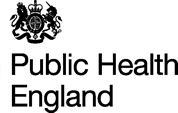About the Project
We need more drugs to treat tuberculosis (TB), particularly multi-drug-resistant (MDR) TB. TB drug therapy must to be shortened by using more effective drug combinations. Extensively-drug resistant (XDR) Mycobacterium tuberculosis isolates are virtually untreatable with existing antimicrobials. Therefore, new classes of drugs, that have novel modes of action, are needed for the treatment of TB. Antimicrobial drug resistance in M. tuberculosis cannot be explained solely by the accumulation of resistance-conferring gene mutations; phenotypic mechanisms (such as removal of drug by efflux pumps) also have an important role to play. Efflux-mediated tolerance to bedaquiline has already arisen in clinical isolates despite its very recent introduction. M. tuberculosis efflux mechanisms are likely to reduce the efficacy of new and existing antimicrobials, and may potentiate the emergence of drug resistance. Current anti-tuberculosis drugs are substrates for different efflux pathways that are likely expressed at different stages of infection. However, this has not been demonstrated systematically. This project aims to (1) investigate the regulation of M. tuberculosis efflux pumps in response to frontline antimicrobial drugs; (2) determine the antibiotic-specificity of M. tuberculosis efflux pumps; and (3) assess the impact of efflux inhibitors on drug-tolerance and drug resistance in TB. The project will involve aspects of microbiology, bioinformatics, genomics/transcriptomics, and biochemistry in infectious disease research.
As this is a multidisciplinary project, the successful applicant will hold a degree in microbiology or a closely related subject, with substantial components of molecular biology and biochemistry. Preferably she/he will have gained some lab experience by doing a sandwich year/summer work/MSc project. The student will need to be able to demonstrate good knowledge of bacterial physiology and molecular genetics. It is expected that they will have a strong interest in M. tuberculosis. Applicants should be enthusiastic, a good communicator, and have a mature attitude towards research. The student will learn a number of techniques during the life of the project, including Containment Level 3 work with TB strains, chemostat culture of M. tuberculosis, drug evaluation and antibiotic resistance characterisation, mutant generation, transcriptomics, whole genome sequencing, and flow cytometry.
The project is based in the TB research Programme at Public Health England, National Infection Service, Porton Down, Salisbury, UK. There is an expectation that the student will learn to become part of the team and take some responsibility for lab duties/report and manuscript writing. Applicants will need to have a good Health and Safety track record at University and/or in previous places of employment. This project is in collaboration with Dr Simon Waddell at the Wellcome Trust Brighton and Sussex Centre for Global Health Research, Brighton and Sussex Medical School (BSMS), Brighton, UK. BSMS is an equal partnership between the Universities of Sussex and Brighton together with NHS staff throughout the South East Region. The student will be registered with the University of Brighton. The student will spend part of their time (up to 25%) at BSMS on the molecular aspects of the project and will access training and career development opportunities through the University of Brighton and following university postgraduate support guidelines.
Please submit a covering letter describing why you are interested in the project and a CV to Dr Joanna Bacon: [Email Address Removed]
Funding Notes
EU applicants must demonstrate a relevant connection to the UK through ordinary residence. As a UK public funded body, PHE cannot fund applicants from outside the EU. PHE studentships do not carry visas so all applicants must have a valid, independent reason, for staying in the UK for the duration of the project.

 Continue with Facebook
Continue with Facebook

